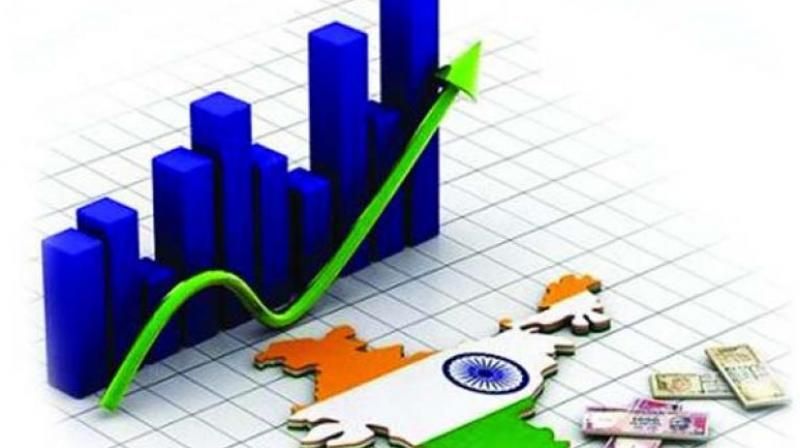India will clock over 7.5 per cent growth in 2017-18: Finance Secretary

New York: India can clock a GDP growth of over 7.5 per cent in the fiscal 2017-18 and the country's macro-economic fundamentals, including fiscal deficit and inflation, are all "very sound", according to Finance Secretary Ashok Lavasa.
Lavasa, who is visiting the US to attend a global investors conference, said that while there has been a general climate of economic slowdown in the last few years across the world, India has managed to maintain a healthy rate of growth.
"As far as (fiscal year) 2017-18 is concerned, I'm looking certainly at the economy growing at 7.5 per cent plus," Lavasa told PTI yesterday.
"Though it (growth rate) might not be as much as people would have expected but still among the developing economies and other economies, India continues to grow at a healthy rate," he said.
Lavasa pointed out that India's macro-economic fundamentals, including the Current Account Deficit, fiscal deficit, inflation and Balance of Payments, are all "very sound".
"On all accounts, the Indian economy is in a fairly sound position. We feel that the kind of potential India has for growth is unmatched by other countries," he said.
Going by the potential for additional consumption in India, driven by changing lifestyles and growing urbanisation, there are several positives in the Indian economy and "India will not only continue to grow at a healthy rate but it will continue to be a very attractive destination for many investors," he said.
The International Monetary Fund last month projected India's growth at 7.2 per cent in the fiscal 2017-18 and at 7.7 per cent for the next financial year.
The Manila-headquartered Asian Development Bank sees the growth jumping to 7.4 per cent in 2017-18 and 7.6 per cent in the next fiscal even as concerns were raised that the demonetisation exercise undertaken by India in November last year could have an impact on the country's GDP growth.
Lavasa said that predictions over demonetisation having an immense adverse effect on the country's economic growth turned out to be untrue.
He, however, noted that certain sectors of the economy which largely depended on cash and some informal sectors did have a temporary setback when the highest denomination currencies of Rs 1000 and Rs 500 ceased to be legal tender.
"But if you look at the tax collection of the government, taxes have shown not a minor but substantial increase. Excise duty has grown by over 31 per cent in 2016-17 over the previous year. The buoyancy in tax revenue does not certainly indicate that there was a major adverse impact (of demonetisation)," he said.
"We feel that there is lot of formalisation of many economic activities which this process of demonetisation has helped in triggering - digitalisation of the economy and greater use of digital transactions. All this is a development which will stand the economy in good stead," he said.
Lavasa further acknowledged that there is certainly much more potential for private investment to grow in India and "with the kind of measures that this government has taken and the reforms undertaken, much more investment will take place".

